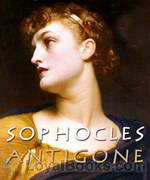|
Books Should Be Free Loyal Books Free Public Domain Audiobooks & eBook Downloads |
|
|
Books Should Be Free Loyal Books Free Public Domain Audiobooks & eBook Downloads |
|
Plays |
|---|
|
Book type:
Sort by:
View by:
|
By: Friedrich Schiller (1759-1805) | |
|---|---|
 Love and Intrigue
Love and Intrigue
Ferdinand is an army major and son of President von Walter, a high-ranking noble in a German duke's court, while Luise Miller is the daughter of a middle-class musician. The couple fall in love with each other, but both their fathers tell them to end their affair. The President instead wants to expand his own influence by marrying Ferdinand to Lady Milford, the duke's mistress, but Ferdinand rebels against his father's plan and tries to persuade Luise to elope with him. | |
 Camp of Wallenstein
Camp of Wallenstein
This is the first play of Friedrich Schiller's Wallenstein Trilogy. Set in a Bohemian camp during the Thirty Years War, it introduces the major characters of the rest of the trilogy, like Albrecht von Wallenstein and Max Piccolomini, from their subordinates' point of view. | |
By: Sophocles (495-406 BC) | |
|---|---|
 Antigone
Antigone
This is the final installment in Sophocles's Theban Plays, following Oedipus Rex and Oedipus at Colonus. Oedipus's daughter Antigone deliberately breaks the laws of Thebes when she buries her brother's body and is sentenced to death. She clashes with Creon, the King of Thebes, over what constitutes justice and morality: the laws of the state or the laws of the individual. | |
 Electra
Electra
Sophocles' play dramatizes the aftermath of Agamemnon's murder by his wife Clytemnestra and her lover Aegisthus. His daughter Electra is hungry for revenge and longs for the return of her brother Orestes to help her achieve her ends. | |
By: G. K. Chesterton (1874-1936) | |
|---|---|
 Magic: A Fantastic Comedy
Magic: A Fantastic Comedy
| |
By: Christopher Marlowe (1564-1593) | |
|---|---|
 The Tragical History of Doctor Faustus
The Tragical History of Doctor Faustus
The Tragical History of Doctor Faustus, normally known simply as Doctor Faustus, is a play by Christopher Marlowe, based on the Faust story, in which a man sells his soul to the devil for power and knowledge. Doctor Faustus was first published in 1604, eleven years after Marlowe's death and at least twelve years after the first performance of the play. | |
 The Jew of Malta
The Jew of Malta
Christopher “Kit” Marlowe (baptised 26 February 1564 – 30 May 1593) was an English dramatist, poet, and translator of the Elizabethan era. The foremost Elizabethan tragedian before William Shakespeare, he is known for his magnificent blank verse, his overreaching protagonists, and his own untimely death. The Jew of Malta (1589) is an original story of religious conflict, intrigue, and revenge, set against a backdrop of the struggle for supremacy between Spain and the Ottoman Empire in the Mediterranean... | |
 Tamburlaine the Great
Tamburlaine the Great
Tamburlaine the Great is the name of a play in two parts by Christopher Marlowe. It is loosely based on the life of the Central Asian emperor, Timur 'the lame'. Written in 1587 or 1588, the play is a milestone in Elizabethan public drama; it marks a turning away from the clumsy language and loose plotting of the earlier Tudor dramatists, and a new interest in fresh and vivid language, memorable action, and intellectual complexity. Along with Thomas Kyd's The Spanish Tragedy, it may be considered the first popular success of London's public stage... | |
 Tragical History of Doctor Faustus (1616 version)
Tragical History of Doctor Faustus (1616 version)
The Tragicall History of the Life and Death of Doctor Faustus, commonly referred to simply as Doctor Faustus, is a play by Christopher Marlowe, based on the Faust story, in which a man sells his soul to the devil for power and knowledge. Doctor Faustus was first published in 1604, eleven years after Marlowe's death and at least twelve years after the first performance of the play. "No Elizabethan play outside the Shakespeare canon has raised more controversy than Doctor Faustus. There is no agreement concerning the nature of the text and the date of composition... | |
 Edward II
Edward II
Christopher Marlowe's Elizabethan tragedy focuses on the downfall of King Edward II, whose love for his favorite courtier, Piers Gaveston, leads to rebellion. | |
By: Oliver Optic (1822-1897) | |
|---|---|
 The Birthday Party, A Story For Little Folks
The Birthday Party, A Story For Little Folks
Flora Lee’s birthday came in July. Her mother wished very much to celebrate the occasion in a proper manner. Flora was a good girl, and her parents were always glad to do any thing they could to please her, and to increase her happiness. | |
By: J. M. Barrie (1860-1937) | |
|---|---|
 Dear Brutus
Dear Brutus
At a house in the country 8 guests are invited to enter a magical wood to see what might have happened had they made a different choice in life. Even though they are warned away from the wood, they take a chance and enter. The title comes from Shakespeare: "The fault lies in our selves, dear Brutus, not in our stars...," and summarizes the theme of this play: given a second chance, will people still make the same mistakes? | |
By: George Bernard Shaw | |
|---|---|
 Candida
Candida
Candida, a comedy by playwright George Bernard Shaw, was first published in 1898, as part of his Plays Pleasant. The central characters are clergyman James Morell, his wife Candida and a youthful poet, Eugene Marchbanks, who tries to win Candida's affections. The play questions Victorian notions of love and marriage, asking what a woman really desires from her husband. The cleric is a Fabian Socialist, allowing Shaw—himself a Fabian—to weave political issues, current at the time, into the story. | |
 Major Barbara
Major Barbara
George Bernard Shaw's Major Barbara focuses on the family of aristocratic Lady Britomart Undershaft and her estranged husband Andrew, a millionaire armaments manufacturer. Their daughters Sarah and Barbara are both engaged to be married, and Lady Britomart decides to ask Andrew for monetary support. Barbara is a Major in the Salvation Army, and agrees to let her father visit the mission in the East End of London where she works. In exchange, she agrees to visit his munitions factory. The conflict between Barbara's philanthropic idealism and her father's hard-headed capitalism clash when he decides he wants to fund the Salvation Army... | |
 Don Juan in Hell
Don Juan in Hell
Don Juan in Hell is an excerpt (Act 3, Scene 2) from George Bernard Shaw’s Man and Superman. It is often performed as a stand-alone play. In it, three characters from Mozart’s Don Giovanni (Don Juan, Dona Ana, and the statue of the Commendatore, Dona Ana’s father) meet in Hell and, joined by the Devil, have a philosophical debate on a variety of subjects, including Heaven and Hell, men, women and marriage. In the end, they all decide where they will spend eternity. | |
 Heartbreak House
Heartbreak House
On the eve of World War I, Ellie Dunn, her father, and her fiancé are invited to one of Hesione Hushabye’s infamous dinner parties. Unfortunately, her fiancé is a scoundrel, her father’s a bumbling prig, and she’s actually in love with Hector, Hesione’s husband. This bold mix of farce and tragedy lampoons British society as it blithely sinks towards disaster. | |
 Caesar and Cleopatra
Caesar and Cleopatra
| |
By: Lord George Gordon Byron (1788-1824) | |
|---|---|
 Manfred
Manfred
Manfred is a dramatic poem in three acts by Lord Byron, and possibly a self confessional work. A noble, Manfred, is haunted by the memory of some unspeakable crime. In seeking for forgetfulness and oblivion, he wanders between his castle and the mountains. He has several encounters with the people who try to assist him, as well as spirits that rule nature and human destiny. The poem explores themes of morality, religion, guilt and the human condition. | |
 The Island
The Island
Written late in his career, Byron's narrative poem The Island tells the famous story of the mutiny on board the Bounty, and follows the mutineers as they flee to a South Sea island, "their guilt-won Paradise." | |
By: Gertrude Stein (1874-1946) | |
|---|---|
 Geography and Plays
Geography and Plays
Geography and Plays is a 1922 collection of Gertrude Stein's "word portraits," or stream-of-consciousness writings. These stream-of-consciousness experiments, rhythmical essays or "portraits", were designed to evoke "the excitingness of pure being" and can be seen as literature's answer to Cubism, plasticity, and collage. Although the book has been described as "a marvellous and painstaking achievement in setting down approximately 80,000 words which mean nothing at all," it is considered to be one of Stein's seminal works. | |
By: Anton Chekhov (1860-1904) | |
|---|---|
 Swan Song
Swan Song
In 'The Swan Song' an aging actor reminisces about his life and the parts he's played. The piece takes a tragic look at ambition and the sacrifices that must be made in order to succeed. Chekhov’s ability to capture and explore human nature and experience is showcased here. | |
 Ivanov
Ivanov
Nicolai (anglicised Nicholas in this translation) Ivanov, a middle-aged public servant, is unhappy. His wife Anna, disinherited by her family after converting from Judaism, is dying of tuberculosis. He is deeply in debt. And his best friend’s daughter is infatuated with him. Comedy and tragedy ensue in truly Chekhovian fashion. An example of the young Chekhov’s maturing style, Ivanov is an early harbinger of themes that would recur throughout his work. | |
By: August Strindberg (1849-1912) | |
|---|---|
 Countess Julie
Countess Julie
August Strindberg’s naturalistic one-act drama has only three characters: Julie, a passionate young noblewoman; Jean, her father’s ambitious valet; and Kristin, the cook, who is also Jean’s fiancee. The play is set on Midsummer Eve, when everyone is reveling, and Julie and Jean get a bit too intimate – with tragic results. | |
 Creditors
Creditors
Creditors is an 1889 tragicomedy by August Strindberg that plumbs the depths of the twisted triangular relationship between Tekla, her husband Adolph, and her ex-husband Gustav. | |
By: Robert Browning (1812-1889) | |
|---|---|
 Pippa Passes
Pippa Passes
Pippa Passes was a dramatic piece, as much play as poetry, by Robert Browning published in 1841 as the first volume of his Bells and Pomegranates series. The author described the work as the first of a series of dramatic pieces. His original idea was of a young, innocent girl, moving unblemished through the crime-ridden neighbourhoods of Asolo. The work caused outrage when it was first published, due to the matter-of-fact portrayals of many of the area’s more disreputable characters – notably the adulterous Ottima – and for its frankness on sexual matters... | |
By: Aeschylus (525/524 BC - c. 455/456 BC) | |
|---|---|
 The Oresteia
The Oresteia
The Oresteia is a trilogy by Aeschylus, one of the foremost playwrights of ancient Greece. It encompasses three plays: Agamemnon, The Libation Bearers, and The Furies. It tells the tragic tale of the House of Atreus, whose inhabitants have been cursed and are doomed to play out their bloody, vengeful destinies. At the beginning of the first part, the Trojan War has ended and the Greek general, Agamemnon, is returning victorious to his wife Clytemnestra. Yet she finds it difficult to forgive his sacrifice of their daughter, Iphigenia, who was killed to ensure the Greek fleet fair winds in their voyage to Troy... | |
By: John Webster (c.1580 - c.1634) | |
|---|---|
 The Duchess of Malfi
The Duchess of Malfi
John Webster's bloody Jacobean tragedy exposes the decadence of the Italian court. The virtuous Duchess of Malfi, a young widow, secretly marries her steward Antonio, and is subsequently persecuted by her brothers: the sexually obsessed and eventually mad Ferdinand, and the corrupt Cardinal. | |
By: Euripides (480-406 BC) | |
|---|---|
 The Bacchae
The Bacchae
This tragedy is based on the mythological story of King Pentheus of Thebes and his mother Agave, and their punishment by the god Dionysus (who is Pentheus' cousin) for refusing to worship him. | |
 The Trojan Women
The Trojan Women
Euripides' play follows the fates of the women of Troy after their city has been sacked, their husbands killed, and as their remaining families are about to be taken away as slaves. However, it begins first with the gods Athena and Poseidon discussing ways to punish the Greek armies because they condoned Ajax the Lesser for dragging Cassandra away from Athena's temple. What follows shows how much the Trojan women have suffered as their grief is compounded when the Greeks dole out additional deaths and divide their shares of women. | |
By: Ben Jonson (1572-1637) | |
|---|---|
 Volpone, or, The Fox
Volpone, or, The Fox
Volpone is a comedy by Ben Jonson first produced in 1606, drawing on elements of city comedy and beast fable. A merciless satire of greed and lust, it remains Jonson's most-performed play, and it is among the finest Jacobean Era comedies. Volpone is a Venetian gentleman who pretends to be on his deathbed, after a long illness, in order to dupe Voltore, Corbaccio, and Corvino, three men who aspire to inherit his fortune. In their turns, each man arrives to Volpone’s house bearing a luxurious gift, intent upon having his name inscribed to the will of Volpone, as his heir... | |
By: Susan Glaspell (1876-1948) | |
|---|---|
 Trifles
Trifles
On the surface, this short play is a slice-of-life story about a murder investigation in the rural United States. However, it is also a story about the relationships between men and women, husbands and wives, and the often-overlooked "trifles" which can say so much about a person's life. | |
By: Edmond Rostand (1868-1918) | |
|---|---|
 Cyrano de Bergerac
Cyrano de Bergerac
One of the most beloved French plays of all time, Cyrano de Bergerac is a clever and tragic tale of truth concealed and love denied. Its titular character is a proud, daring swordsman and genius poet who has one terrible flaw: an abnormally large nose. Too afraid of rejection to confess his love for the beautiful Roxane, Cyrano helps her brainless but handsome suitor Christian to woo her, providing him with love letters while resolutely keeping his own passion a secret. | |
By: Richard Brinsley Sheridan (1751-1816) | |
|---|---|
 The Rivals
The Rivals
The play is set in Bath in the 18th century, a town legendary for conspicuous consumption and fashion at the time. Wealthy, fashionable people went there to "take the waters", which were believed to have healing properties. The plot centres on the two young lovers, Lydia and Jack. Lydia, who reads a lot of popular novels of the time, wants a purely romantic love affair. To court her, Jack pretends to be "Ensign Beverley", a poor officer. Lydia is enthralled with the idea of eloping with a poor soldier in spite of her guardian, Mrs... | |
 School For Scandal
School For Scandal
Richard Brinsley Sheridan's comedy was first performed in 1777 and focuses on the intrigues and scandals of the British upper classes. Lady Sneerwell wants to marry Charles Surface, while Joseph Surface wants to marry Maria, an heiress and ward of Sir Peter Teazle. Maria, however, prefers Charles over Joseph. In order to detach her from Charles, Lady Sneerwell and Joseph spread rumors about an affair between Charles and Lady Teazle, Sir Peter's new young wife. Meanwhile, Sir Oliver Surface, newly returned from the East Indies, assumes various disguises to test his nephews' characters. Misunderstandings, mistaken identities, gossip, and bad behavior abound in this uproarious comedy. | |
By: Aristophanes (446BC - 385BC) | |
|---|---|
 Lysistrata
Lysistrata
Lysistrata read by the Classics Drama Company at DePaul. The Classics Drama Company at DePaul is a new gathering of Thespians and Classicists dedicated to performing and understanding ancient literature. If you live in Chicago and attend DePaul University, we welcome new additions to our group. Contact Dr. Kirk Shellko (kshellko@depaul.edu), if interested.First performed in classical Athens c. 411 B.C.E., Aristophanes’ Lysistrata is the original battle of the sexes. One woman, Lysistrata, brings together the women of all Greece, exhorting them to withhold sexual contact from all men in order that they negotiate a treaty... | |
By: Gilbert Parker (1862-1932) | |
|---|---|
 Seats of The Mighty
Seats of The Mighty
| |
By: Langdon Mitchell (1862-1935) | |
|---|---|
 The New York Idea
The New York Idea
I find it very hard to classify "The New York Idea" under any of the established rubrics. It is rather too extravagant to rank as a comedy; it is much too serious in its purport, too searching in its character-delineation and too thoughtful in its wit, to be treated as a mere farce. Its title—not, perhaps, a very happy one—is explained in this saying of one of the characters: "Marry for whim and leave the rest to the divorce court—that's the New York idea of marriage." Like all the plays,... | |
By: Jean Racine (1639-1699) | |
|---|---|
 Phaedra
Phaedra
In the court of Louis XIV, adaptations of Greek tragedies were very popular. This play, heavily influenced by Euripides' Hippolytus, deals with love that violates social taboos. Note: In Racine's work, a new "scene" begins whenever a character enters or exits. Therefore, there are no stage directions, only a list of the characters on stage for each scene. The action is continuous for the entire act. | |
By: William Congreve (1670 -1729) | |
|---|---|
 The Way of the World
The Way of the World
The Way of the World is a play written by British playwright William Congreve. It premiered in 1700 in the theatre in Lincoln's Inn Fields in London. It is widely regarded as being one of the best Restoration comedies written and is still performed sporadically to this day.The play is based around the two lovers Mirabell and Millamant (originally famously played by John Verbruggen and Anne Bracegirdle). In order for the two to get married and receive Millamant's full dowry, Mirabell must receive the blessing of Millamant's aunt, Lady Wishfort... | |
By: Eugene O'Neill | |
|---|---|
 Anna Christie
Anna Christie
Eugene O'Neill's drama Anna Christie was first produced on Broadway in 1921 and received the Pulitzer Prize in 1922. It focuses on three main characters: Chris Christopherson, a Swedish captain of a coal barge and longtime seaman, his daughter Anna, who has grown up separated from her father on a Minnesota farm, and Mat Burke, an Irish stoker who works on steamships. At the beginning of the play Chris and Anna are reunited after fifteen years apart. Anna comes to live on her father's coal barge, but hides the secret of her past from him. When she meets Mat after an accident in the fog, they almost immediately fall in love - but Anna finds that forging a new future will not be easy. | |
By: Frank Wedekind (1864-1918) | |
|---|---|
 Pandora's Box
Pandora's Box
| |
 Earth Spirit
Earth Spirit
Earth Spirit (1895) (Erdgeist) is a play by the German dramatist Frank Wedekind. It forms the first part of his pairing of 'Lulu' plays (the second is Pandora's Box [1904]), both of which depict a society "riven by the demands of lust and greed". Together with Pandora's Box, Wedekind's play formed the basis for the silent film Pandora's Box (1929) starring Louise Brooks and the opera Lulu by Alban Berg in 1935 (premiered posthumously in 1937). The eponymous "earth spirit" of this play is Lulu, who Wedekind described as a woman "created to stir up great disaster... | |
By: George Farquhar (1677-1707) | |
|---|---|
 Recruiting Officer
Recruiting Officer
| |
By: Florence Holbrook (1860-1932) | |
|---|---|
 Dramatic Reader for Lower Grades
Dramatic Reader for Lower Grades
Despite the title's bland sounding name, this book is a charming collection of 16 plays for children. These little plays—well-known stories done into dialogue—were written for children who like to imagine themselves living with their favorite characters in forest, in palace, or in fairyland. Included are Cinderella, Robin Hood, William Tell, Hansel and Gretel and many more. | |
By: Francis Beaumont (1584-1616) | |
|---|---|
 The Maid's Tragedy
The Maid's Tragedy
Beaumont and Fletcher's The Maid's Tragedy (first published 1619) is a sensational Jacobean sex tragedy. When gentleman soldier Melantius returns to Rhodes, he finds his dear friend Amintor is recently married - but not to his troth-plight love Aspatia (the maid of the title). Instead, the King has arranged a match between Amintor and Melantius' sister, the beautiful Evadne. On his wedding night, Amintor finds that his new wife has married him under false pretenses - and this unleashes a torrent of dire consequences, sexual, emotional, and ultimately political. | |
By: David Belasco (1853-1931) | |
|---|---|
 Return of Peter Grimm
Return of Peter Grimm
| |
By: Augusta Stevenson (1869-1976) | |
|---|---|
 Children's Classics in Dramatic Form
Children's Classics in Dramatic Form
| |
By: August von Kotzebue (1761-1819) | |
|---|---|
 Lover's Vows
Lover's Vows
Lovers' Vows (1798), a play by Elizabeth Inchbald arguably best known now for having been featured in Jane Austen's novel Mansfield Park (1814), is one of at least four adaptations of August von Kotzebue's Das Kind der Liebe (1780; literally "Child of Love," or "Natural Son," as it is often translated), all of which were published between 1798 and 1800. Inchbald's version is the only one to have been performed. Dealing as it does with sex outside marriage and illegitimate birth, Inchbald in the Preface to the published version declares herself to have been highly sensitive to the task of adapting the original German text for "an English audience... | |
By: Frances Browne (1816-1879) | |
|---|---|
 Granny's Wonderful Chair
Granny's Wonderful Chair
Her most famous work, Granny's Wonderful Chair, was published in 1856 and it is still in print to this day. It is a richly imaginative book of fairy stories and has been translated into many languages. This work, read as a child by Frances Hodgson Burnett, inspired the writings of Little Saint Elizabeth and Other Stories | |
By: Jesse Lynch Williams (1871-1929) | |
|---|---|
 Why Marry?
Why Marry?
Why Marry? is a comedy, which "tells the truth about marriage". We find a family in the throes of proving the morality of marriage to a New Age Woman. Can the family defend marriage to this self-supporting girl? Will she be convinced that marriage is the ultimate sacredness of a relationship or will she hold to her perception that marriage is the basis of separating two lovers."Why Marry?" won the first Pulitzer Prize for Drama. | |
By: Alfred Sutro (1863-1933) | |
|---|---|
 Five Little Plays
Five Little Plays
British dramatist Alfred Sutro's collection contains five one act plays: "The Man in the Stalls," "A Marriage Has Been Arranged…", "The Man on the Kerb," "The Open Door," and "The Bracelet." The plays are performed by Amanda Friday, Libby Gohn, Elizabeth Klett, mb, Bob Neufeld, Caprisha Page, Bruce Pirie, and Algy Pug. | |
By: Kenneth McGaffrey (??-1938) | |
|---|---|
 The Sorrows of a Show Girl
The Sorrows of a Show Girl
Originally printed in The Morning Telegraph in New York, this is the story of Miss Sabrina, the show girl, and her ups and downs with the unpredictable theatrical industry and the Great White Way, the lights and glamour of Broadway. "In order to set myself right with both the public and the vast army of Sabrinas that add youth and beauty to our stage, and brilliancy and gaiety to our well known cafes, I wish to say that she is all that she should be...”- Kenneth McGaffrey | |
By: William Shakespeare (1564-1616) | |
|---|---|
 Coriolanus
Coriolanus
Shakespeare was passionately interested in the history of Rome, as is evident from plays like Titus Andronicus, Julius Caesar, and Antony and Cleopatra. His tragedy Coriolanus was probably written around 1605-07, and dramatizes the rise and fall of a great Roman general, Caius Martius (later surnamed Coriolanus because of his military victory at Corioli). This play is unusual in that it provides a strong voice for the ordinary citizens of Rome, who begin the play rioting about the high price of food, and who continually clash with Coriolanus because of his contempt for plebians. | |
By: Various | |
|---|---|
 One-Act Play Collection 003
One-Act Play Collection 003
This collection of ten one-act dramas features plays by Edward Goodman, Alice Gerstenberg, Arnold Bennett, John Galsworthy, Anton Chekhov, Frank Wedekind, Moliere, Theresa Helburn, John Kendrick Bangs, and Harold Brighouse. | |
By: Euripides (480-406 BC) | |
|---|---|
 Medea
Medea
Euripides' tragedy focuses on the disintegration of the relationship between Jason, the hero who captured the Golden Fleece, and Medea, the sorceress who returned with him to Corinth and had two sons with him. As the play opens, Jason plans to marry the daughter of King Creon, and the lovesick Medea plots how to take her revenge. | |
By: Molière | |
|---|---|
 Tartuffe
Tartuffe
Jean-Baptiste Poquelin, known by his stage name Molière, was a French playwright and actor who is considered to be one of the greatest masters of comedy in Western literature. Among Molière's best-known works is Tartuffe or The Hypocrite, written in 1664. Though Tartuffe was received well by the public and even by Louis XIV, its popularity was lessened when the Archbishop of Paris issued an edict threatening excommunication for anyone who watched, performed in, or read the play.Tartuffe, a pious fraud who pretends to speak with divine authority, has insinuated himself into the household of Orgon... | |
By: Upton Sinclair (1878-1968) | |
|---|---|
 The Machine
The Machine
Upton Sinclair is best known for his novel The Jungle, an expose of the meatpacking industry. He was also a playwright whose works for the stage reflected the same progressive viewpoints found in his other writing. In The Machine, published as part of Sinclair's 1912 collection Plays of Protest, Socialist activists show a rich man's daughter the truth about the society in which she has been raised. | |
By: Various | |
|---|---|
 One-Act Play Collection 002
One-Act Play Collection 002
This collection of eight one-act dramas features plays by Eugene O'Neill, George Bernard Shaw, John Galsworthy, Susan Glaspell, William Dean Howells and John Millington Synge. It also includes a dramatic reading of a short story by Frank Richard Stockton. | |
By: Henrik Ibsen (1828-1906) | |
|---|---|
 The Wild Duck
The Wild Duck
The Wild Duck (1884) (original Norwegian title: Vildanden) is by many considered Ibsen's finest work, and it is certainly the most complex. It tells the story of Gregers Werle, a young man who returns to his hometown after an extended exile and is reunited with his boyhood friend Hjalmar Ekdal. Over the course of the play, the many secrets that lie behind the Ekdals' apparently happy home are revealed to Gregers, who insists on pursuing the absolute truth, or the "Summons of the Ideal". Among these truths: Gregers' father impregnated his servant Gina, then married her off to Hjalmar to legitimize the child... | |
By: Eugene O'Neill (1888-1953) | |
|---|---|
 Beyond the Horizon
Beyond the Horizon
Beyond the Horizon is a 1920 play written by American playwright Eugene O'Neill. It was O'Neill's first full-length work, and the winner of the 1920 Pulitzer Prize for Drama. The play focuses on the portrait of a family, and particularly two brothers Andrew and Robert. In the first act of the play, Robert is about to go off to sea with their uncle Dick, a sea captain while Andrew looks forward to marrying his sweetheart Ruth and working on the family farm as he starts a family. | |